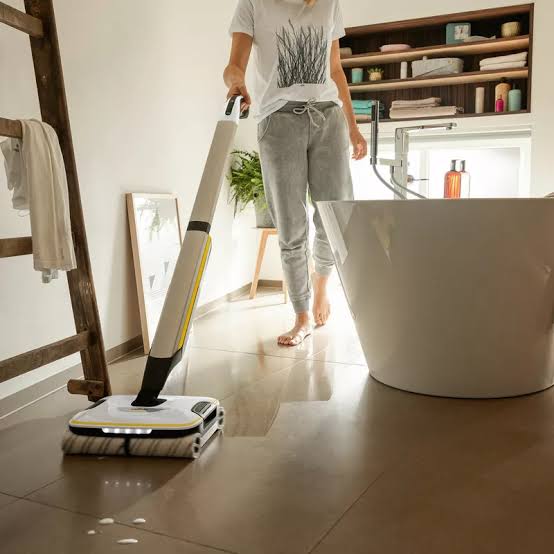Introduction
Tiled surfaces are often the crowning jewels of rooms, showcasing their intricate designs and glossy finishes. Yet, it’s the often-overlooked grout that plays a pivotal role in maintaining this allure. Over time, grout can become discolored and tainted by various contaminants, detracting from the overall appeal of the tiled area. While routine cleaning can help, it often falls short in restoring the grout’s original brilliance. This is where professional grout cleaning steps in, offering a deeper cleanse and rejuvenation, ensuring that tiles continue to shine and rooms retain their pristine charm.
Understanding Grout and Its Importance
Grout is more than just a filler between tiles; it’s a vital component that aids in the stability and durability of the entire tiling system. Made typically from a mixture of water, cement, and sand, grout ensures tiles remain securely in place while also preventing moisture and debris from seeping beneath them. Its porous nature, however, makes it susceptible to staining and bacterial growth, highlighting the importance of proper maintenance.
The aesthetic aspect of grout is equally crucial. When clean and free of discoloration, grout complements tile designs, giving a seamless and polished look to surfaces. Overlooking its care not only compromises the structural integrity of the tiling but can also diminish the visual appeal of the entire space.click here
Common Causes of Grout Discoloration
Grout discoloration is a common concern for homeowners and can be attributed to various factors. Daily traffic and exposure to dirt and spills can lead to surface stains. Additionally, the porous nature of grout makes it a magnet for dirt and grime, which, over time, can embed deeper into it, causing persistent discoloration that’s tough to eliminate with routine cleaning.
Another significant culprit is moisture. In areas like bathrooms or kitchens, persistent dampness can promote the growth of mold and mildew, leading to dark or greenish stains. Incorrect cleaning agents, too, can play a part. Harsh chemicals can strip away grout’s protective layer, making it more prone to staining and wear.
Why Regular Cleaning Isn’t Enough
Regular cleaning, while essential, often fails to address the deeper issues affecting grout. Here’s why it may not suffice:
- Surface Vs. Depth: Everyday cleaning generally addresses surface-level dirt, leaving behind deeply embedded grime that tarnishes the grout’s appearance over time.
- Porosity: Grout’s porous nature attracts and retains moisture, leading to mold and mildew growth, which standard cleaning might miss.
- Harsh Chemicals: Household cleaners, especially those with strong chemicals, can erode grout’s protective layers, making it even more susceptible to staining.
- Inadequate Sealing: Over time, the sealant protecting the grout can wear off. Without resealing, even the most diligent cleaning routines can’t prevent discoloration and damage.
The Professional Grout Cleaning Process
The professional grout cleaning process delves much deeper than typical household methods, employing specialized tools and techniques. Initially, experts undertake a thorough inspection, pinpointing areas of concern and assessing the level of grime accumulation. This pre-inspection allows for a tailored cleaning approach, ensuring optimal results without causing damage to the tiles or grout itself. this article
Armed with specialized cleaning agents designed to break down even the most stubborn stains, professionals use high-pressure steam cleaning or rotary machines to extract deeply embedded dirt. Once the cleaning phase is complete, a high-quality sealant is typically applied. This sealant acts as a barrier, preserving the grout’s refreshed appearance and making future maintenance simpler and more effective.
Benefits of Professional Grout Cleaning
Opting for professional grout cleaning offers a multitude of benefits that go beyond mere aesthetics. First and foremost, it revives the original luster and vibrancy of your tiled surfaces. As grout gets refreshed, the entire room appears brighter and more welcoming, enhancing the space’s overall aesthetic appeal. The precise techniques used by professionals ensure that the tiles remain undamaged, preserving their longevity.
Beyond the visual perks, professional cleaning also carries health benefits. By thoroughly eliminating mold, mildew, and bacteria, it creates a healthier living environment. This is especially crucial in damp areas, where microbial growth is rampant. Additionally, a clean and sealed grout reduces the chances of water damage to underlying surfaces, ensuring the structural integrity of your tiled spaces.read info
Tips for Maintaining Clean Grout Post-Professional Cleaning
Post professional cleaning, maintaining grout’s pristine condition can significantly extend its lifespan and keep your tiles looking their best. Here are some tips to ensure its longevity:
- Regular Wipes: In moisture-prone areas, wipe surfaces post-use to prevent water accumulation, which can lead to mold and mildew.
- pH-balanced Cleaners: For routine cleaning, opt for pH-balanced products. These are gentle on grout, preserving its protective seal.
- Avoid Harsh Scrubbing: Use soft brushes or cloths to avoid eroding the grout.
- Promptly Address Spills: Clean up any spills immediately, particularly colored liquids like wine or coffee, to prevent staining.
- Schedule Check-ins: Even with diligent care, consider periodic professional inspections to address any emerging issues early.
Conclusion
In conclusion, while tiles are the face of any beautiful surface, it’s the grout that holds the story together. Its maintenance, often overlooked, is pivotal not just for aesthetics but for overall tile health and longevity. Relying solely on regular cleaning can leave grout vulnerable to deep-seated stains and damage. Professional grout cleaning offers an unparalleled depth of cleanse, rejuvenating your space and ensuring a healthier environment. By adopting preventive measures post-treatment, homeowners can enjoy the brilliance of their tiles for years to come.
